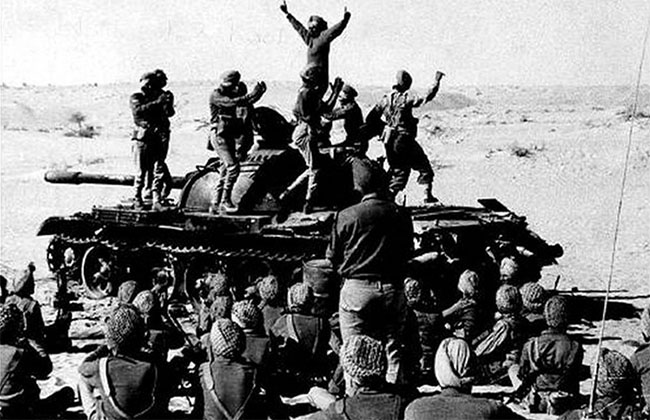
The controversial ‘two-nation theory’ a brainchild of Mohammad Ali Jinnah collapsed after 24 years when the eastern province of Pakistan bifurcated and became Bangladesh.
The so-called ‘two-nation theory’ envisaged a separate state for Indian Muslims to “live happily ever after” in Pakistan was proven tobe wrong when Bangladesh was liberated in December 1971.
The first-ever general elections on basis of the ‘adult franchise washeld in 1970. In fact, the 1970 election was the first general election since Pakistan was carved out from India in 1947.
The elections stirred a political hype in the eastern province of Pakistan (now Bangladesh) which kick-startedthe realisation of a lost identity of anoverwhelming Bangla speaking nation-state.
Fifty-two years ago, the general electionswere held on 7 December1970 toelect members of the National Assembly.
The general election was short of inclusive elections. The left-leaning National Awami Party (NAP) led by MaulanaAbdul Hamid Khan Bashani boycotted the national electionsafter he rejected the election guideline based on ‘Legal Framework Order’ and also argued that the participation in the elections would legitimisethe military dictator General Yayha Khan’s junta.
The top-secret intelligence message transmitted from Dhaka to the military hawks of Rawalpindi General Head Quarters of Pakistan Armypredicted Awami League would get only one-thirdof seats in the national and provincial assemblies, while Muslim League, Pakistan Democratic Party (PDP), National Awami Party (Muzaffar)and other Islamist parties will sweep by a two-third majority.
The Rawalpindi hawks were confident that an unholyalliance of pro-Pakistan power-hungry political leaders would absolutely marginalise the Awami League led by a roaring tiger of Bengal – Bangabandhu Sheikh Mujibur Rahman.
Military hawks in Rawalpindi concluded that Sheikh Mujib was a threat to national security. If his party becomes a majority, he would implement the debated “six-point charter” which advocates for regional autonomy and is deemed as seditious political agenda.
Thus the “six-point charter” would decentralise power to the regions of political hotbeds of Sind, Balochistan, North-West Frontier Province (now Khyber Pakhtunkhwa).
The political landscapes of the latter two were dominated by the fiercest tribal lords who are up with weapons against the hawks rocking in Rawalpindi.
The hawks’immediate concern was who will govern Pakistan? A fiercecontest between two socialist democratic parties took place in the 1970 elections – theAwamiLeague in the east and Pakistan Peoples Party (PPP) in the western region.
As the countdown for an electoral battle of ballots for 300 constituencies[162 seats in the eastern province and 138 in West Pakistan],Islam or Muslim became secondary in the election campaign.The overarching political upbeat wasbased on regionalism and sugar-coatedwith language and cultural nationalism, which further widened the political gap between the two provinces.
Awami League became the single majority in the eastern wing, while PPP managed to dent in two provinces of Sind and Punjab, but rejected in Balochistan,NWFPand the eastern provinces.
In reality, PPP faced stiff competition from the factions of the Muslim Leagues -the Council Muslim League, Convention Muslim League, Muslim League (Qayyum). Thepro-Marxist National Awami Party (Wali) and few other regional parties did relatively well.Very few seats were grabbed by Islamist parties like Jamaat-e-Islami, Jamiat Ulema-e-Islam and Jamiat Ulema-e-Pakistan in West Pakistan.
The landslide victory for the Awami League had won an absolute majority of 160 seats, all of which were in the easternprovince of Pakistan.
This victory was a litmus test for the flamboyant politician Zulfikar Ali Bhutto led PPPwhich won only 81 seats out of 138 seats in the west.
In the five provincial elections held ten days later, the Awami League again swept in the east, while the PPP were the winning party in Punjab and Sindh. The Marxist National Awami Party emerged victorious in the then NWFP (now Khyber Pakhtunkhwa) and restive Balochistan.
During the political impasse, on 1 March 1971, the Rawalpindi hawks unilaterally cancelled the first National Assembly scheduled to be held in Dhaka to blackmail Sheikh Mujib to come to terms with sharing power with political parties in the central.
The military dictator Yayha Khan’s parley with Sheikh Mujibin mid-March reached a stalemate, as the latter argued that Martial Law clamped in March 1969 must be withdrawn before the commencement of parliament session to be held in Dhaka.
Mujib declined to enter into a deal with the military hawks on power-sharing. The negotiation turned from sour to bitter.
In 48 hours after the dialogue collapsed, the genocidal campaign –‘Operation Searchlight’was launched on the night of 25 March 1971.
Pakistan is yet to make a public apology for the war crimes, genocide and rape as a weapon of war committed during the brutal birth of Bangladesh in 1971.
Saleem Samad, is an independent journalist, media rights defender, recipient of Ashoka Fellowship and Hellman-Hammett Award. He could be reached at <saleemsamad@hotmail.com>; Twitter @saleemsamad

